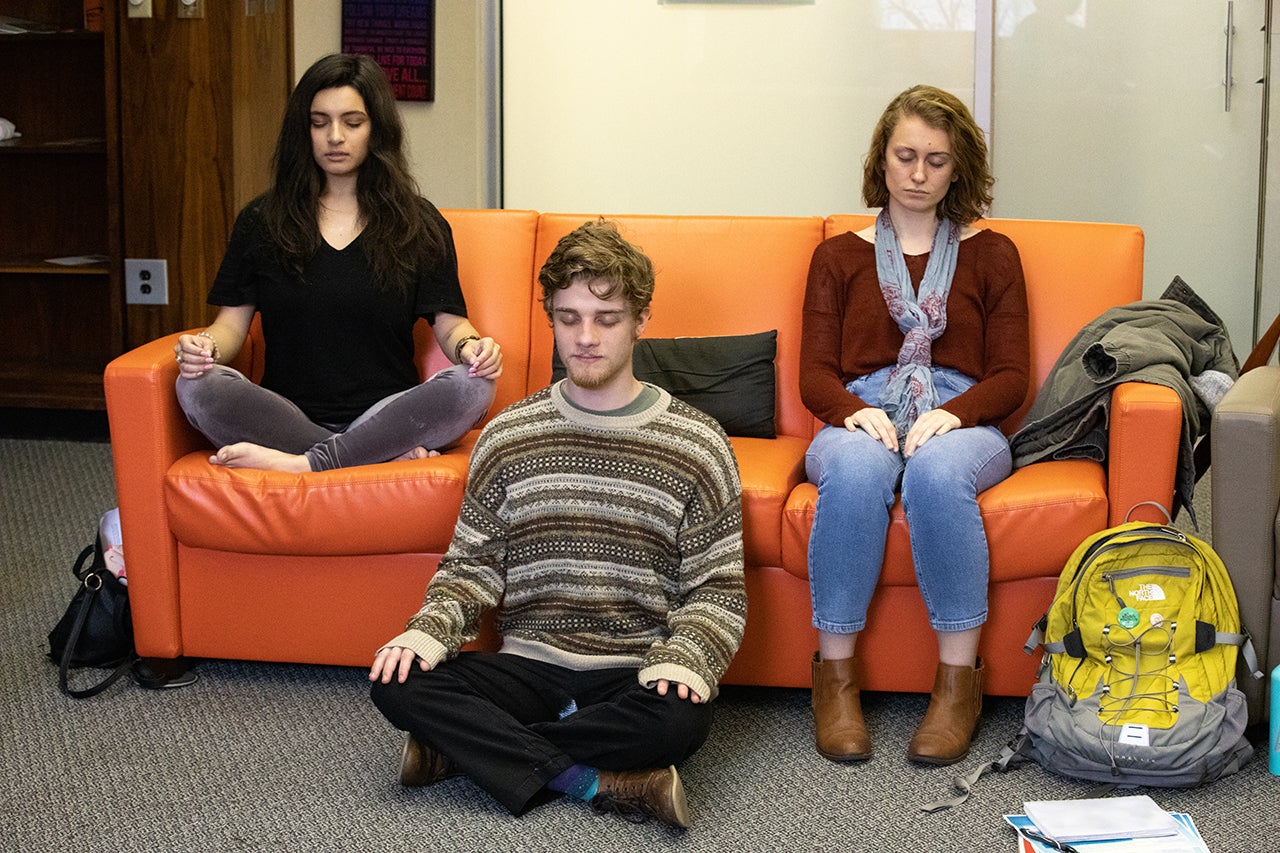Sometimes we just need to take a break from it all – just a little time away to stop what we’re doing, catch our breath and clear our heads. And, this summer at the College of Charleston, that time is 12:30 p.m. every Wednesday.
Starting Wednesday, May 15, 2019, faculty and staff are invited to this summer’s lunchtime guided meditations in the Robert Scott Building, room 319. Varying in technique from week to week, the meditations last around 25 minutes and are followed by a brief discussion. No previous meditation experience is necessary.
And if that’s not enough, below are eight more reasons to give the lunchtime meditations a chance!
1. Meditation reduces stress, increases stress resilience and helps control anxiety.
Everyone benefits from the stress-reducing merits of meditation, including people with stress-triggered medical conditions. Habitual meditation helps reduce anxiety and anxiety-related mental health issues like social anxiety, phobias and obsessive-compulsive behaviors.
2. Meditation improves sleep quality.
Not only does meditation help you relax, it can control the thoughts that interfere with your sleep, shortening the time it takes you to fall asleep and increasing your sleep quality.
3. Meditation reinforces mental discipline and willpower.
By helping you redirect bad unwanted habits and avoid triggers for impulses, meditation can help you fight addiction and lose weight.
4. Meditation decreases blood pressure.
It’s no surprise that meditation reduces your blood pressure while you’re practicing it, but if you practice it regularly, overall blood pressure will decrease over time. This reduces the strain on your heart and arteries and also prevents heart disease.
5. Meditation increases self awareness.
Self-inquiry and related styles of meditation can help you get to know yourself better, allowing you to make positive changes in your life.
6. Meditation promotes emotional health.
Meditation can improve depression, create a more positive outlook on life and increase gratitude. Research shows that maintaining an ongoing habit of meditation may help you maintain these benefits long term.
7. Meditation increases productivity and attention span and fights dementia.
By improving your focus and building your ability to redirect and maintain attention, meditation increases your memory and mental clarity, which can help fight age-related memory loss and dementia.
8. Meditation generates kindness and reduces implicit bias.
Loving-kindness meditation is a practice of developing positive feelings, first toward yourself and then toward others. This increases positivity, empathy and compassionate behavior toward others and promotes an innate disposition of goodwill. Studies show that just six weeks of loving-kindness meditation, even seven minutes of this intentional practice, has the effect of overriding or replacing implicit bias.
For more information about the summer guided meditations, or to schedule a formal meditation class this summer, email Rachael McNamara or call her at 843.953.5640.




